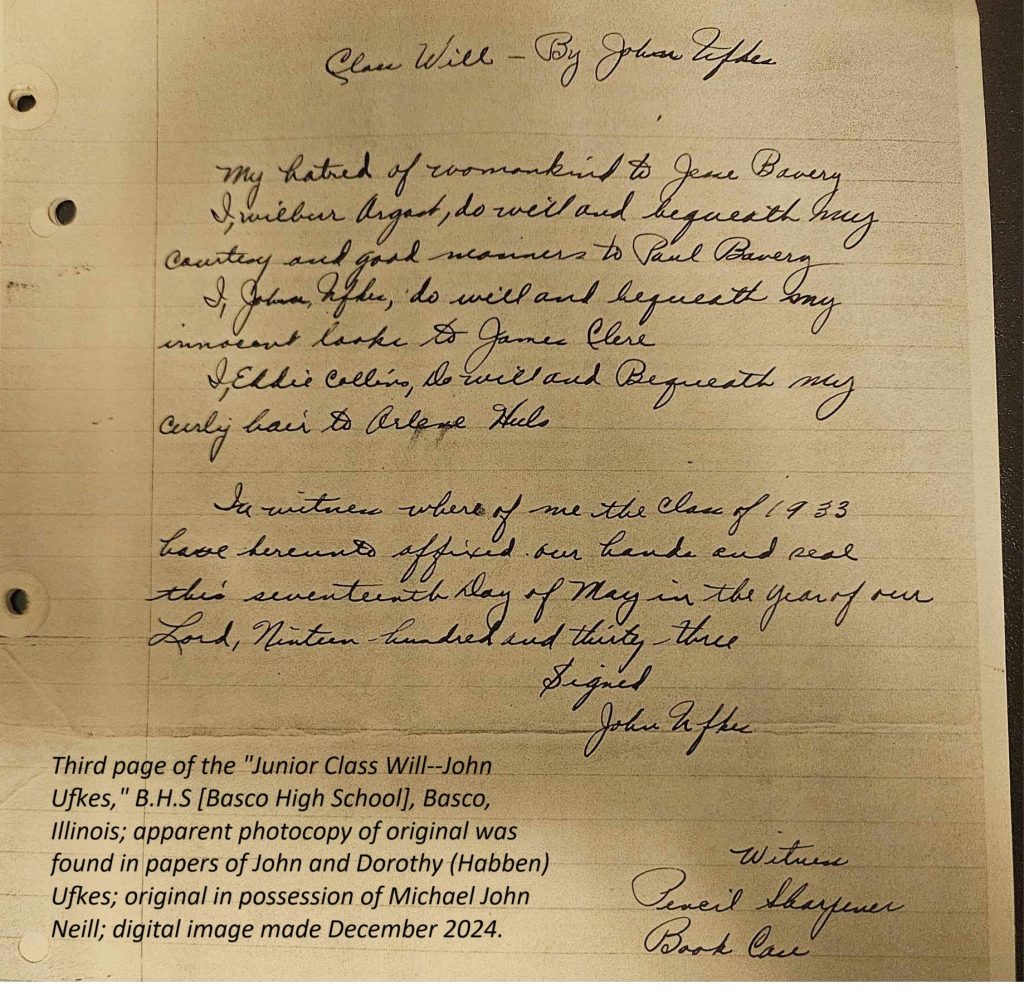
The illustration for this post is the last page of the 1933 “Class Will” from the BHS Junior Class in Basco, Hancock County, Illinois. My grandfather was the one who apparently wrote it. It serves to remind of several genealogical concepts and ideas.
I do not have the original will. What I have is an apparent photocopy that was in my grandparents’ personal items that I acquired from my grandmother after her passing. Technically that makes what I have a derivative copy since it is not the original. My digital image is a derivative copy of my derivative copy–still making it a derivative copy. There’s not a special word for a derivative of a derivative. Copies and digital images usually represent the original accurately, but there’s always the potential for some sort of issue.
A handwritten will written and signed by the testator is referred to as a nuncupative will. These are not admissible to probate in many jurisdictions.
The witnesses names should be clue that the will is not to be taken seriously. The fact that they are in the same handwriting as that of the testator should be a clue that something is awry.
Do not abbreviate. I know what “BHS” stands for (Basco High School), but it’s not existed since the 1940s). In this case BHS is relatively easy to figure out given the context Other abbreviations are not as easy to decipher.








One response
I especially like the witnesses’ identities.